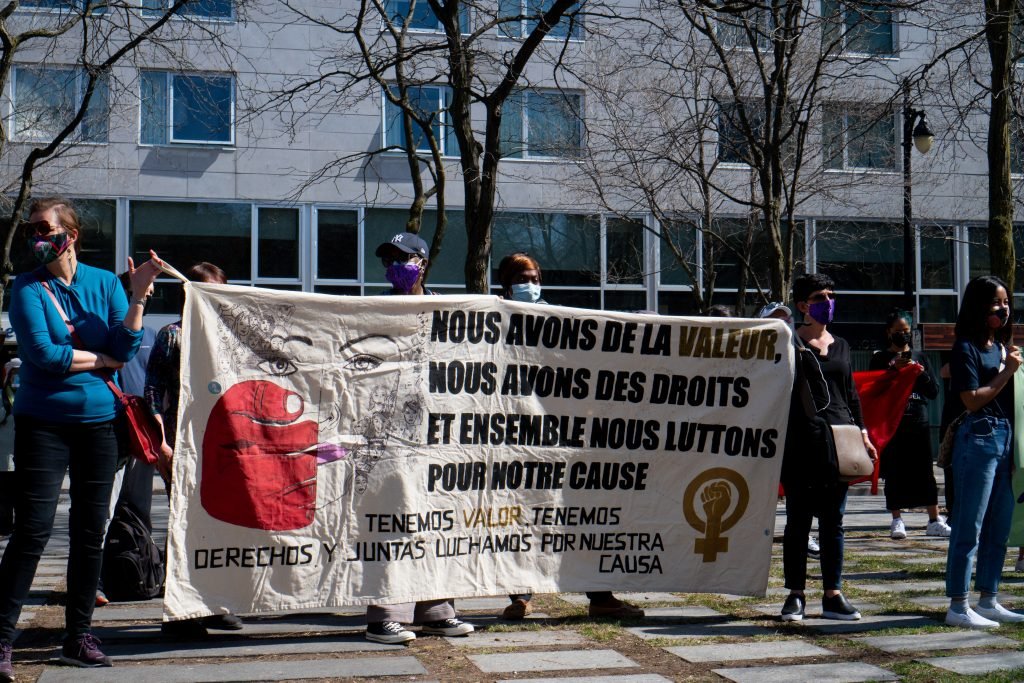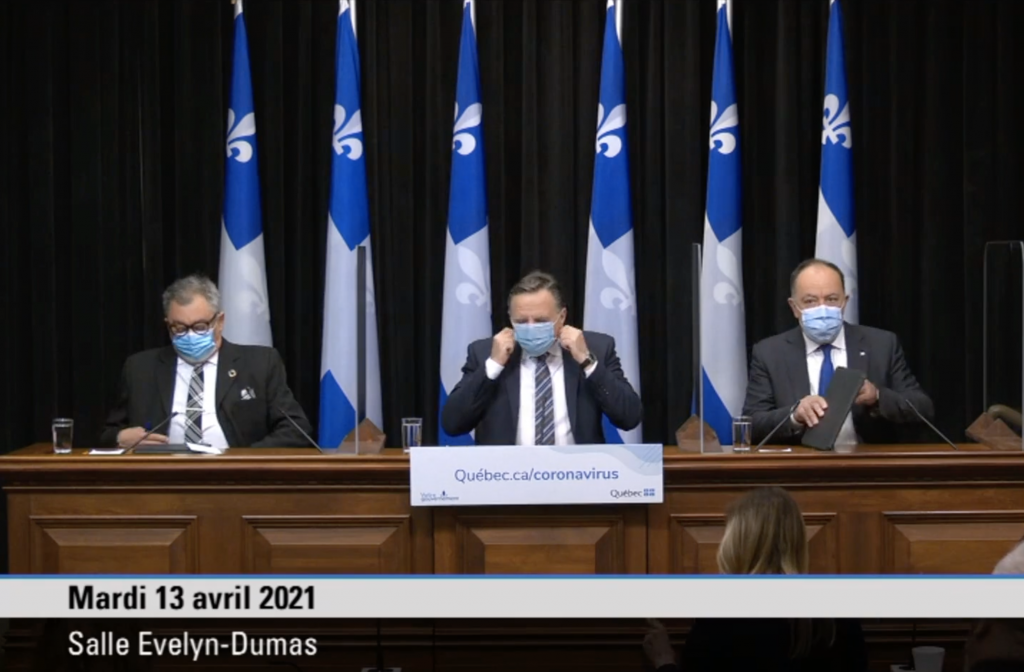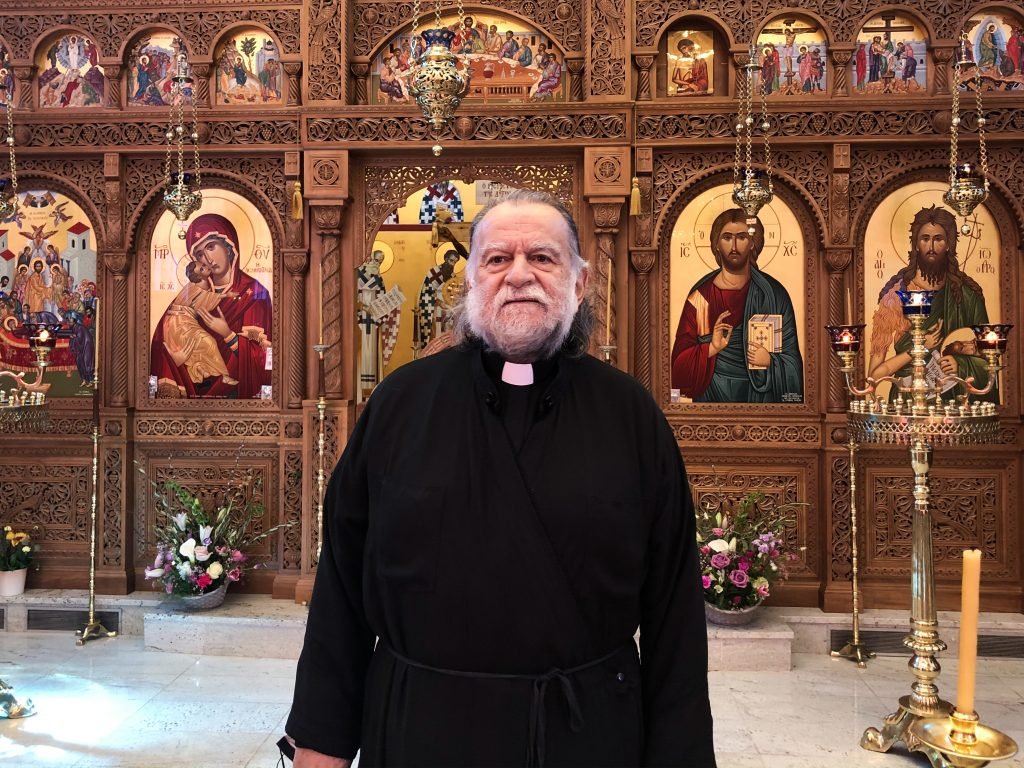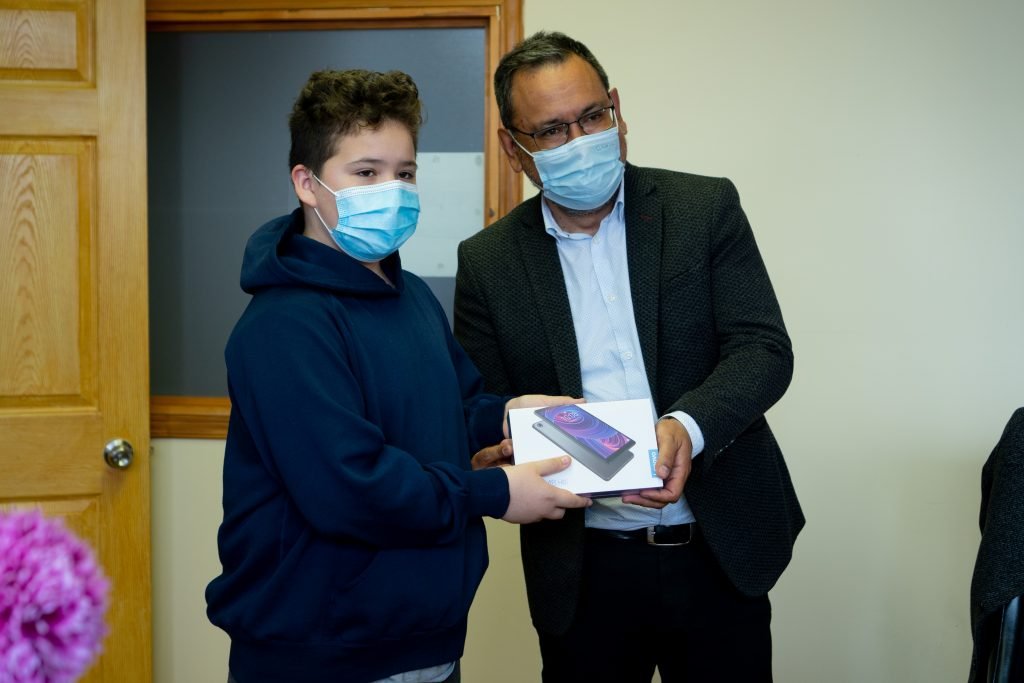
Essential workers demand permanent status
With trees budding, longer days and temperatures regularly above zero, April was the month the city came back to life.
On Apr. 10, a group of approximately 100 people gathered at Peace Park in front of Québec’s Immigration Ministry’s head offices to demand the regularization of status for thousands of immigrant essential workers in Québec.
“This event is meant to mark the one-year anniversary of the pandemic,” said Benoit Scowen, an organizer with the Immigrant Worker Center. He explained that it was meant to create discussion on how COVID-19 had “impacted the most precarious workers in this province.”
Many of the protestors present were essential workers in precarious situations due to their immigration status, with some not even allowed to work. Protestors demanded change to the immigration system that would address the sources of worker precarity, demanding status for all, implementing fair recruitment practices for employment and having realistic language requirements.
Québec Solidaire MNA for Laurier-Dorion Andrés Fontecilla was also present at the rally and echoed many of these demands. “I think this government doesn’t like migrants with precarious status and doesn’t recognize their contribution to society,” stated Fontecilla, adding that the CAQ government had multiplied the administrative hurdles immigrants have to go through.

U-turn on health measures
With COVID-19 case counts and hospitalizations stabilizing over late March, many people believed April would be smooth sailing. Those hopes were quickly dashed on the first day of the month when the provincial government reimposed health restrictions to address a surge in cases in Montreal.
“The situation is fragile and it could become critical very rapidly. This is why we must act in prevention in red and orange zones,” said Legault at a press conference on Apr. 1, 2021. The 9:30 PM curfew was left in place while high schools returned to hybrid learning, gyms were shuttered and places of worship were forced to reduce capacity from 250 people to only 25.
Villeray–Saint-Michel–Parc-Extension was still seeing some of the highest rates of transmission in Montreal, with approximately 400 new cases reported over 14 days.

Greek Orthodox Easter
The new measures affected many different communities in Park Extension, especially the planned religious celebrations set to take place. For example, the Greek community was again forced to celebrate Orthodox Easter under strict COVID-19 restrictions for the second year in a row.
“Because of the COVID-19 it is a very big problem to us,” said Reverend Father Nicolaos Papageorgiou of the Koimisis Tis Theotokou church on Saint-Roch, explaining that he could now only host 25 people at a time in his church. “I have to respect the law of government and to live like that,” he added.
He underscored the importance of the measures and added that social distancing and mask-wearing were “very important.” Reverend Nicolaos was happy that other Christian denominations got to celebrate Easter when limits were still at 250 people in late March.

Tablets distributed to local students
The month of April was also when the Sarker Hope Foundation kicked off its tablet distribution campaign for local students. Five students were awarded brand-new tablets in an effort to make at-home learning and virtual classes easier and more accessible.
The program was started by the foundation to address the glaring lack of access to technology among certain Parc-Extension families and students’ ability to participate in online schooling.
“We found out that a lot of families, single parents, or low-income families, they don’t have the ability or the luxury to have at least one computer, laptop or tablet to communicate with their school teachers to learn,” said Mustaque Sarker, founder and President of the Sarker Hope Foundation, adding that the initiative was only possible with their many private donors.
The event was attended by Québec Solidaire MNA for Laurier Dorion Andrés Fontecilla who had contributed $2,000 to the initiative, helping to distribute the tablets to students. The campaign continued over the following weeks, with over 500 tablets being distributed in total.







